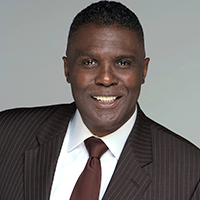
By Glenn Ellis
(Trice Edney Wire) – Where should we be focusing our attention as a community at this point in the COVID-19?
First, while we are all waiting this out, I have only one piece of advice that will help you make it through this: act like you have been already infected with the virus.
I know, it sounds strange. Quickly, let me just say that, if you act like you have it, you’re going to do the right thing.
You’ll self-isolate; you’ll stay away from everybody; you won’t allow anyone to come near you; and you will follow all the precautions, as well as eat, rest, and nourish your spirituality. It’s just that simple.
Now as we are witnessing protests all over the country, demanding that states reopen the country, the African American community is collectively, wondering “how in the world are we going to out of this mess?”
So, here’s the deal. My concern is what health and wellness will actually look like for us in this country.
What we’re seeing happen around is a pandemic that is straining the human and financial resources of the entire public health system. Medical personnel are being shifted and “redeployed” to augment and help expand the capacity, and capability, of an already over-burdened and costly medical industry.
Think about it for a moment. We spend over $3 trillion annually on healthcare in this country. That’s (according the Bureau of Labor Statistics latest figures from 2018) more than $8,045 for every man, woman, and child in this country; yet we still didn’t have enough people, equipment, or money to accommodate our healthcare and public health needs during this crisis. Can you even imagine, before all this, hearing about ICU nurses not having enough protective gear? (Side note: I bet you we wouldn’t run out of bombs and bullets if we were at war with another country.)
Meanwhile, a percentage (probably larger than we realize) of the healthcare workforce, whatever setting that they are working in, is either sick; dead; burned-out; or grieving the loss of a close loved-one. Either way, as we come out of this, we will have fewer doctors and nurses, as well as other allied health professionals. This, among the other challenges we face as a collective community, is what we need to pay close attention to and focus on.
There is universal agreement fact that Africans Americans suffer, disproportionately, with chronic conditions. Put another way; we have higher rates of high blood pressure, arthritis, asthma, cancer, COPD, diabetes and some viral diseases such as hepatitis C and HIV/AIDS. What’s not universally agreed upon is that the racial gap in health outcomes is, in large part, the result of the impact and effect of the structural racism, that is a thread in the African American experience for over 400 years.
Regardless of your opinion of the “why” it’s like this; I say we look at the “what” is happening to us now. Don’t accept that poverty and lack of education are the reasons COVID-19 is wreaking havoc in our communities. CNN reported that in 2018, the black poverty rate was 20.8 percent, which was unfortunately more than double the white rate of 10.1 percent, but still leaves nearly 80 percent of African Americans in the middle and upper classes. Like whites, blacks are also more likely these days to live in suburbs (39 percent) than in cities (36 percent). Another 15 percent live in small metropolitan areas and 10 percent in rural regions. Okay?
The CDC’S Morbidity and Mortality Weekly Report, found that 45% of patients with COVID-19 in the hospital were white, compared to 33% who were black. What’s it all mean? All of us either know, or have heard how sick you have to be in order to be admitted to a hospital during these times. Black folks make up around 13% of the nation’s population, according to 2016 Census Bureau estimates. So, if we are 33% of the folks in the hospital, then we are truly vulnerable, and chronic conditions put at even higher risk; 60% of all deaths are due to chronic diseases.
The point of this column is two-fold.
No one knows how long this pandemic will last. As long it is here, as a community, African Americans are a vulnerable population. Special attention must be paid to your own chronic condition, or of a family member. Be sure to follow your treatment plan, and keep track of your doctor, or usual place of primary care. Know how, where, and when you can access them. Monitor your medication supply and pay attention to any changes in hours or policies (mail, delivery, etc.). Be supportive, if you are in the home with someone who has a chronic condition.
Secondly, this too, shall pass. We need to be mindful of the primary care that will be available as this crisis passes. It will be almost impossible for this country to ever “return to normal”. Our healthcare system will not look like it used to. What will become of the primary care that is essential in the successful management of chronic conditions? Will there be enough primary care doctors? Are the neighborhood clinics that will close due to the financial impact of COVID-19?
THIS, my friends, is where I think our heads and hearts should be…Remember, I’m not a doctor. I just sound like one.
Take good care of yourself and live the best life possible! The information included in this column is for educational purposes only. I do not dispense medical advice or prescribe the use of any technique as a replacement form of treatment for physical, mental or medical problems by your doctor either directly or indirectly.
Glenn Ellis, MPH is a Harvard Medical School Research Bioethics Fellow and author of Which Doctor?, and Information is the Best Medicine. Ellis is an active media contributor on Health Equity and Medical Ethics.















